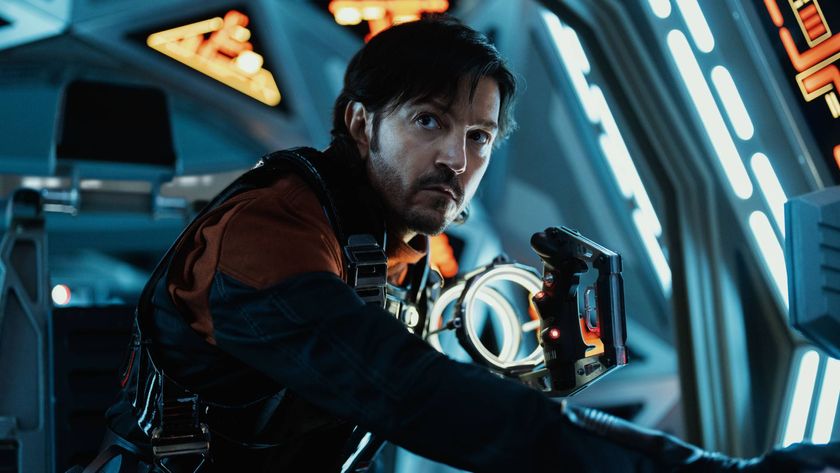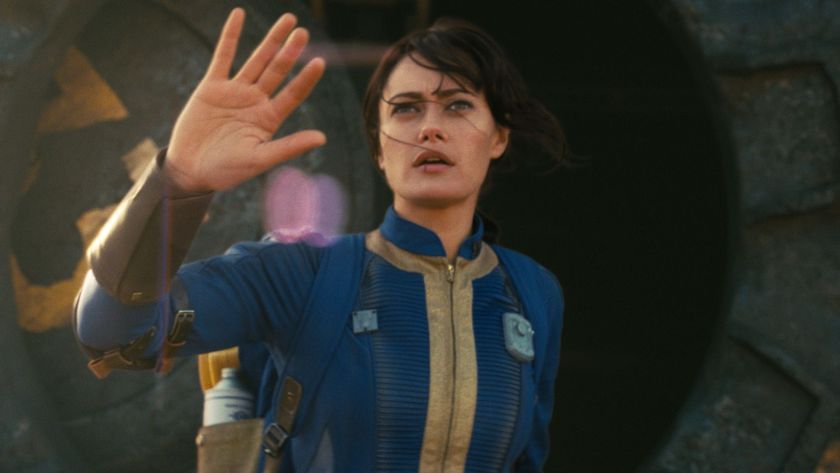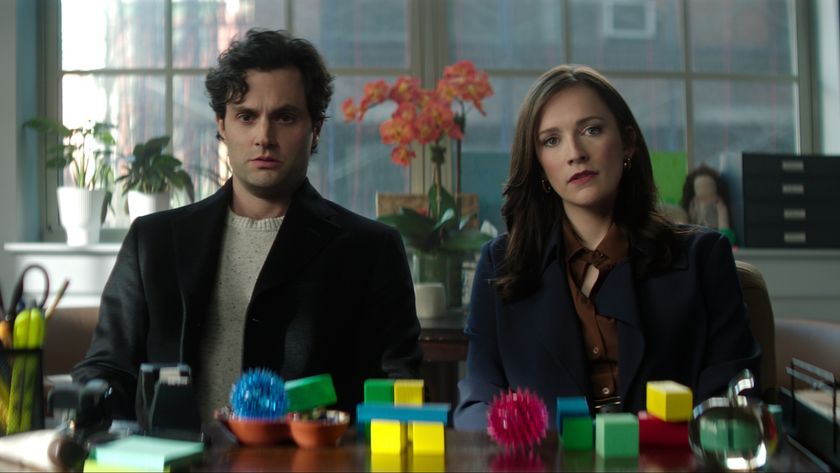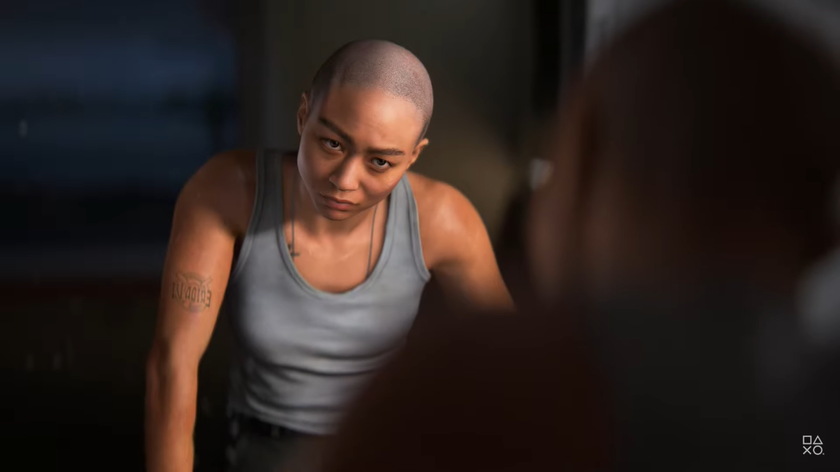Altered Carbon, Watchmen, and the new female action hero
Altered Carbon has become the latest show to make space for women to play roles not often afforded to them
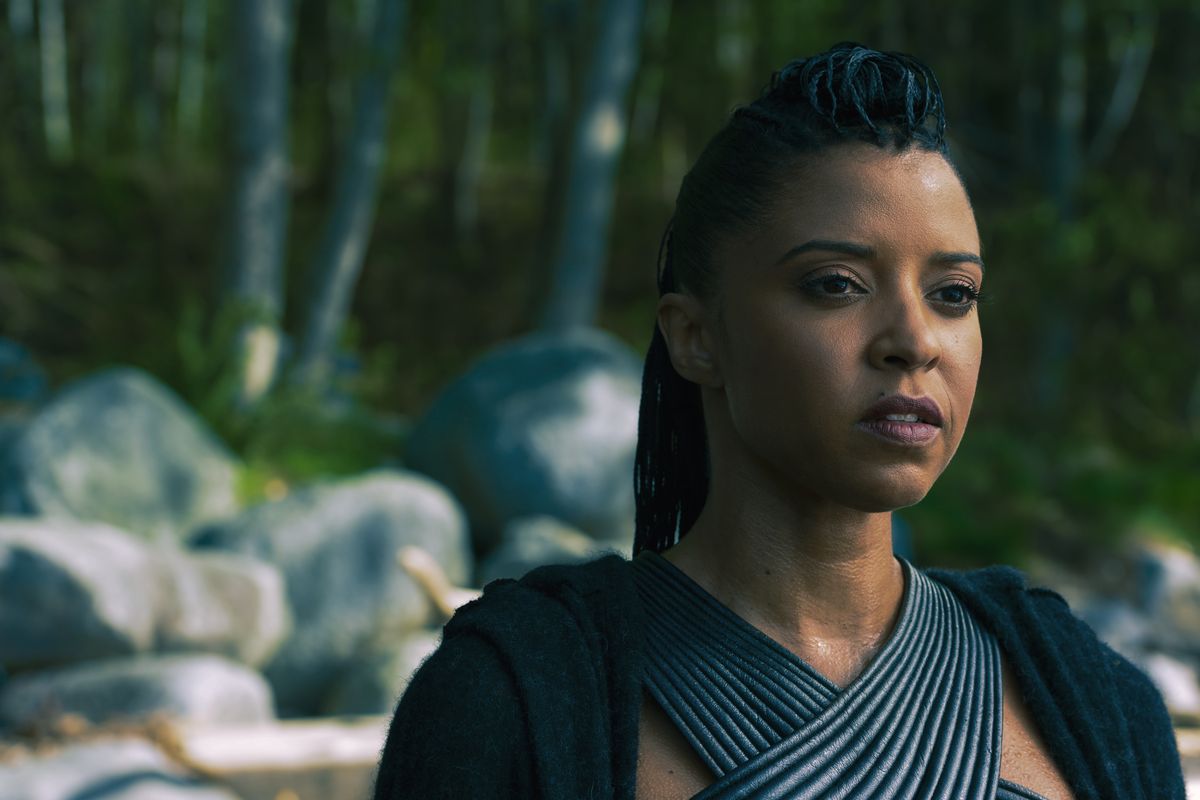
Altered Carbon may revolve around the misadventures of one particular man, yet the most intriguing and exciting characters are the women. And, while that may have been hard to justify when season 1 was criticised for its gratuitous sexual violence against women, season 2 – which has just reached Netflix – lets the science-fiction series' female characters take centre stage.
Renee Elise Goldsberry returns as Quellcrist Falconer, the warrior leader of the Uprising who trained the show’s protagonist, Takeshi Kovacs, to become one of her fearsome resistance fighters, called Envoys. She continues to be the most important character in the series as, without her intellect, instincts, fighting skills, diplomacy and strength, the world would be doomed.
Quellcrist is a leader, a warrior, and a lover. Yet, unlike previous female heroes of series past, that latter personality trait rarely stops her from doing what she believes is right. It's a refreshing change and, as Goldsberry said herself: “We need to see women in roles where we are leaders; we need to see worlds in which the man that’s the supposed saviour of the world has one mission in life, and that is to satisfy the vision and the mission of the woman that he believes in, the woman that basically created him.”
Altered Carbon season 2 – which sees Alias writer Alison Schapker replace series' creator Laeta Kalogridis as showrunner – continues that teacher/apprentice dynamic between Quellcrist and Takeshi, but – rather than her scenes appearing in flashbacks – she is a core part of the present storyline alongside some fresh female faces of colour. In fact, every significant female character this season is a woman of colour. African-American actress Simone Missick (Misty Knight in Luke Cage) joins the cast as lesbian bounty hunter Trepp, Saudi-Arabian-Palestinian actress Dina Shihabi plays an A.I. archaeologist called Dig 301, and Mexican-American actress Lela Loren as the formidable Danica Harlan.
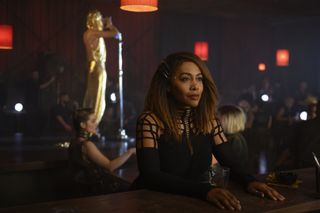
All of these women have agency of their own – agency that goes beyond the men they share the screen with. The heroic characters among them get to save the day just as often, if not more so, than the men. And, thankfully, their abilities and positions of power are not referenced in spite of their sex. Quellcrist is a leader because she is the most intelligent, capable, and inspiring person for the job. Danica has secured her seat of power as Governor of Harlan’s World through her own ingenuity, not because of her womanly wiles. Trepp is a brilliant bounty hunter who doesn’t have to prove her worth in a field saturated with men. Dig 301 is an A.I. who's more capable than the glitchy Poe.
Feminism is about the equality of men and women and Altered Carbon season 2 is a brilliant example of how that can be presented through entertainment. But it is also a good example of intersectional feminism by positioning women of colour in central roles, as both the hero and villain. HBO's Watchmen series is a great illustration of this too.
Regina King plays Sister Knight, a strong, nuanced, and imperfect hero who doesn't have that last facet held against her. The same goes for Hong Chau’s Lady Trieu, the most intelligent person on earth – a position normally occupied by men. Like her predecessor Ozymandias, Trieu has questionable ethics in her pursuit of global salvation. “It was so nice to get to play this archetype – this modern-day archetype who is a woman – and to see how that would manifest itself,” Chau told THR. “The thing we're talking about culturally outside of the show is what would a woman do differently in a position of power. Would it be different, though?”
Sign up for the Total Film Newsletter
Bringing all the latest movie news, features, and reviews to your inbox
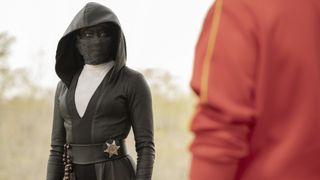
Lady Trieu’s villainy exists in the grey area between good and bad – a space that makes her all the more interesting, especially when she and Sister Knight are in scenes together. The fact that both of the characters’ ethnic heritages play an integral part of their individual narratives, as well as the overarching story arc, makes Watchmen an even more impressive and progressive addition to genre television.
Over the last few years, the landscape of film and television has been steadily evolving to make more space for women to play roles not often afforded to them. Doctor Who has its first female Time Lord; Star Trek Discovery boasts Michael Burnham as its central character; and comic book series like Jessica Jones, Supergirl, iZombie, and Wynonna Earp allow female heroes to take the lead rather than just play a supporting role. With Watchmen and Altered Carbon, not only is the world being introduced to brand new female characters to love and to hate, but it’s also giving actresses of colour more chances to occupy the roles of heroes and villains.
Television is altering its perception of genre television and it is more than welcome.
Hanna Flint is a freelance film and TV critic who has bylines at 12DOVE, Total Film magazine, Variety, BBC Culture, The Guardian, British GQ, IGN, Yahoo Movies, and so many other publications. Hanna has also appeared as a critic and commentator on Sky News, Sky Cinema, BBC World Service, and BBC Radio 5 Live, and can be frequently found as a Q&A host at MTV UK, BFI, and BAFTA. When Hanna isn't writing reviews, interviews, and long-form features about the latest film and TV releases, she specializes in topics concerning representation and diversity.


